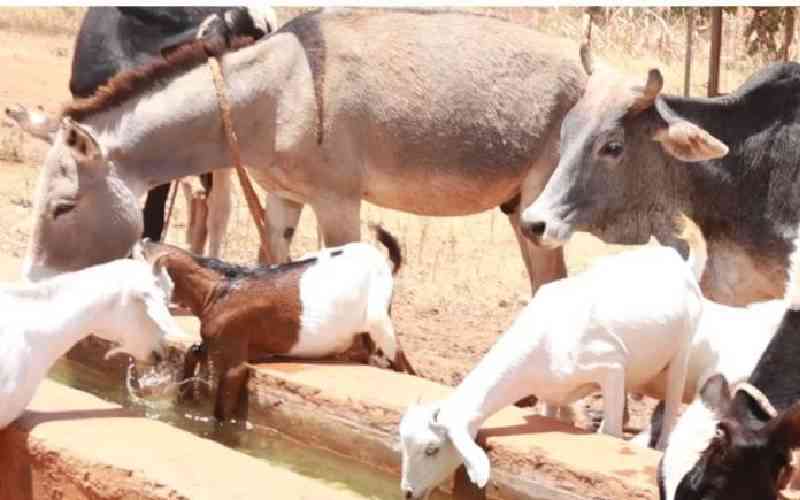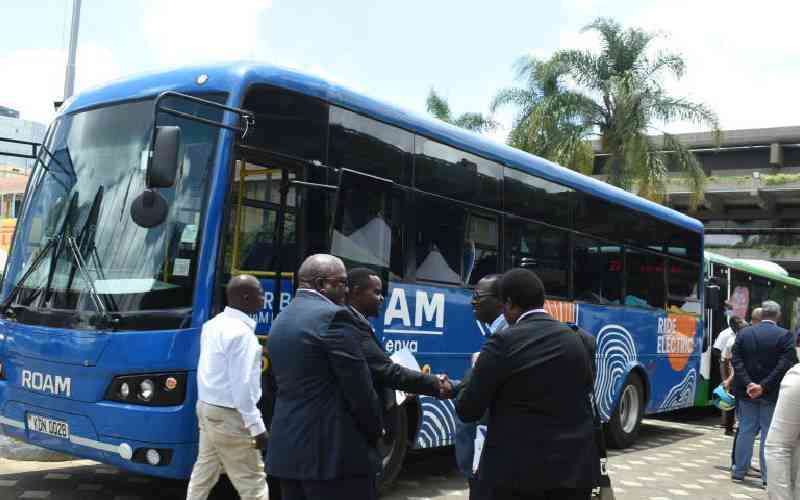
Africa's lifeblood is largely dependent on livestock farming, providing livelihoods, food security, and income opportunities for its populace.
At the heart of recognising this immense potential was the African Union's Inter-African Bureau for Animal Resources (AU-IBAR) that since 2017, embarked on a journey with the Sustainable Development of Livestock for Livelihoods in Africa (Live2Africa) project.
This transformative initiative was poised to revolutionise the livestock sector, fostering sustainable development and empowering communities across the continent. Live2Africa focused on addressing the key challenges faced by livestock farmers, improving productivity, enhancing market access, and promoting environmentally friendly practices.
Now coming to its end this week, the project that was majorly funded by AU member states and the European Union, focussed its activities aligned with the African Union's Agenda 2063 development goals.
According to Dr. Nick Nwankpa, the acting Director of AU-IBAR, leveraging partnerships with governments, research institutions, and local communities, the project was a success.
"We managed to build a resilient and inclusive livestock sector that will continue to contribute to Africa's overall sustainable development goals," he said.
The primary objective of Live2Africa was to strengthen animal health services. By establishing robust veterinary systems, enhancing disease surveillance, and providing training to veterinary professionals.
Daniel Wepukhulu, a dairy farmer who attended the official closing ceremony in Nairobi yesterday, said the initiative mitigated the impact of diseases that often affected his livestock.
"Through improved animal health, I can now sustain my stock and provide constantly while contributing to the overall food security within my community, milk production that I sell to locals and other neighbors has increased," he said.
Live2Africa recognised the importance of breed improvement and sustainable fodder production. By promoting the adoption of high-quality livestock breeds and implementing sustainable feed management practices, the project seeks to enhance livestock productivity while conserving natural resources. This not only improves the income potential of farmers but also fosters environmental sustainability in the face of climate change.
The Live2Africa project emphasises the entire livestock value chain, from production to market. It works closely with stakeholders to enhance market access, promote value addition, and develop effective marketing strategies. By investing in infrastructure, improving transportation networks, and strengthening market linkages, Live2Africa ensures that livestock products reach consumers in a timely manner while maintaining high-quality standards.
As it comes to a close, the positive impact of Live2Africa noticeably extends beyond individual farmers and goes to rural and urban areas alike. Through the project, livestock-related industries, such as meat processing, dairy production, and leather manufacturing, experienced growth and generate employment opportunities. According to their data, the project stimulated economic progress, bridged poverty levels in different countries, and fostered sustainable development.
Through collaboration with international organizations, Regional Economic Communities (RECs) Think Tanks, and research institutions, Live2Africa taps into a wealth of expertise and resources. Partnerships with the Food and Agriculture Organization (FAO), International Livestock Research Institute (ILRI), and regional bodies like ECOWAS and EAC strengthen the project's impact and facilitate knowledge sharing among stakeholders.
Live2Africa made significant strides in the sustainable development of livestock for livelihoods in Africa. By focusing on capacity building, policy support, and community empowerment, the project empowered farmers to become stewards of their own development.
Livestock farming is becoming a viable and sustainable source of income, contributing to poverty reduction and economic growth in both rural and urban areas in Africa. It constitutes a very important component of the agricultural economy of developing countries, a contribution that goes beyond direct food production to include multipurpose uses, such as skins, fibre, fertilizer, and fuel, as well as capital accumulation.
This project among others stands as a beacon of hope for sustainable livestock development in Africa.
 The Standard Group Plc is a multi-media organization with investments in media platforms spanning newspaper print
operations, television, radio broadcasting, digital and online services. The Standard Group is recognized as a
leading multi-media house in Kenya with a key influence in matters of national and international interest.
The Standard Group Plc is a multi-media organization with investments in media platforms spanning newspaper print
operations, television, radio broadcasting, digital and online services. The Standard Group is recognized as a
leading multi-media house in Kenya with a key influence in matters of national and international interest.











